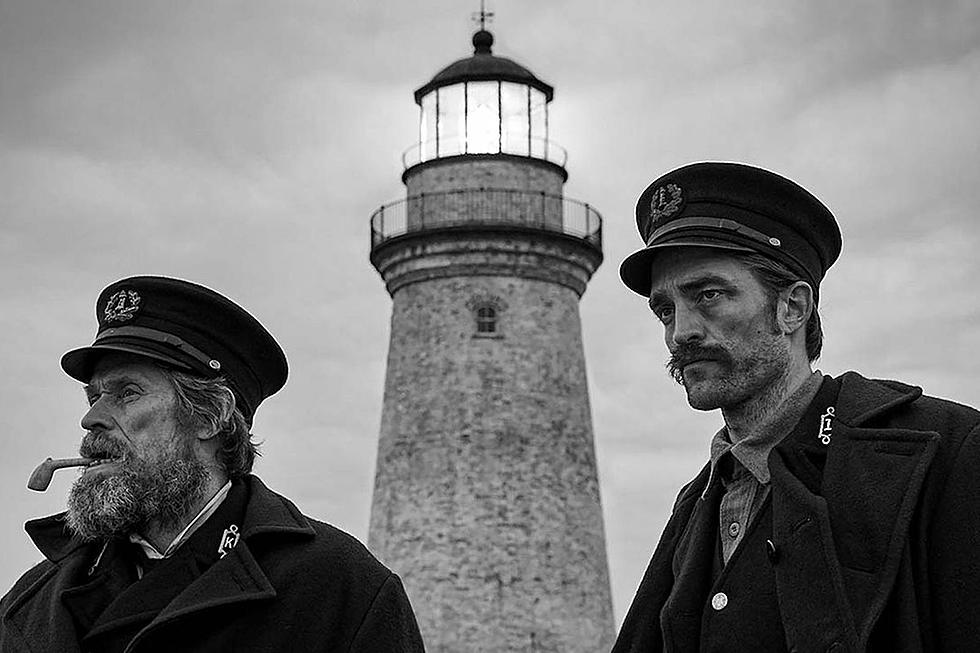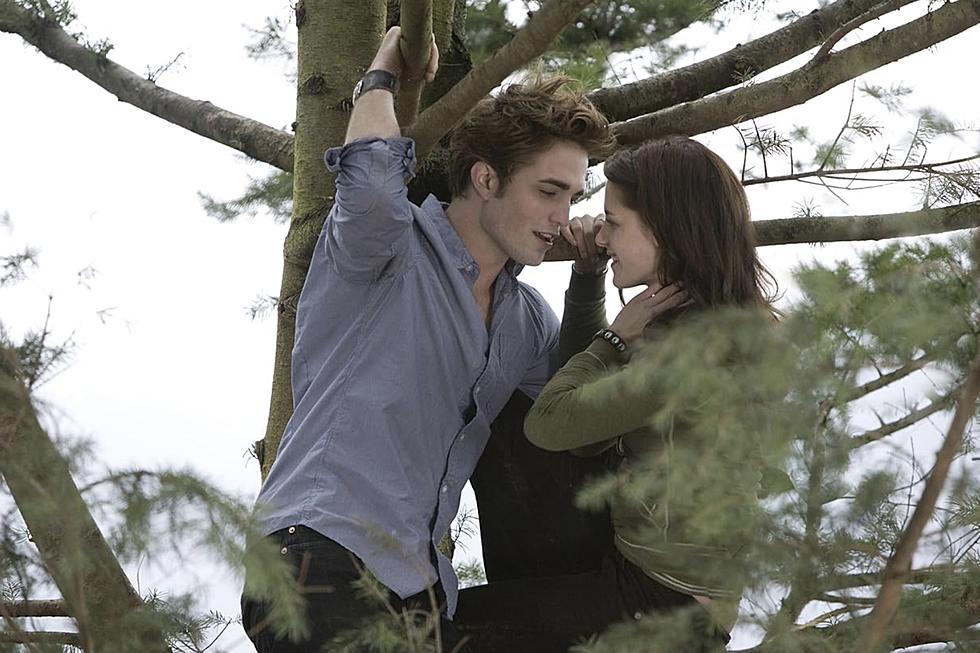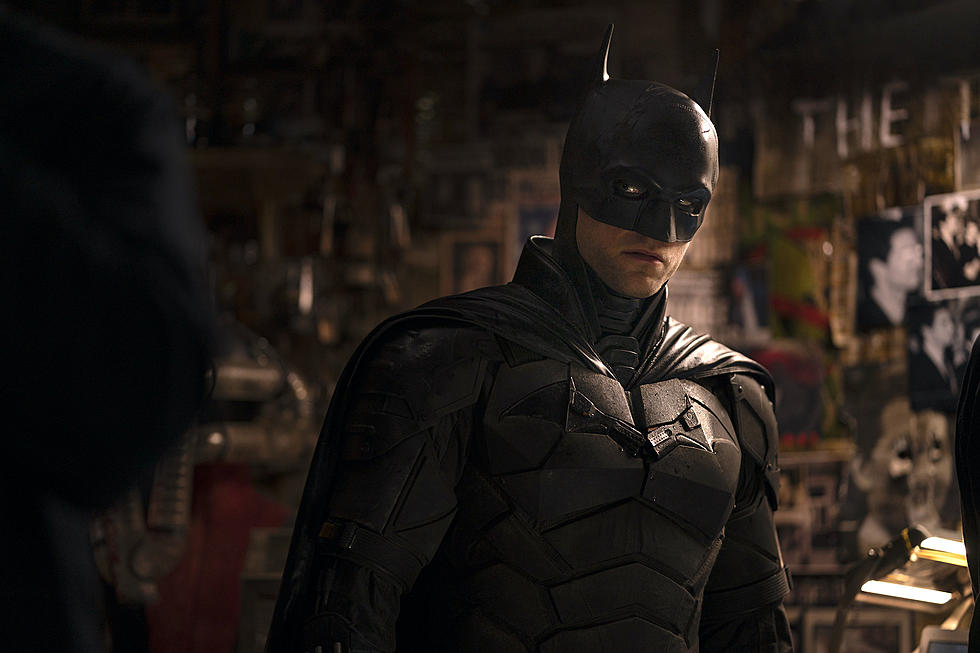
‘The Lighthouse’ Review: Pattinson and Dafoe Lost in a Fog (of Farts)
Robert Eggers makes new movies that feel like ancient texts. First came The Witch, which looked like an adaptation of a 17th century Puritan’s nightmare. His follow-up, The Lighthouse, appears to take place later in history but it feels even older from a formal perspective. With its gloomy cinematography and boxy 4:3 aspect ratio, it has the bearing an old silent film based on a sea shanty told by sailors to pass the time on a cold, dreary night.
Dreary might be underselling it. Though Eggers and cinematographer Jarin Blaschke are working in black and white, it’s more accurate to say The Lighthouse was shot in gray and darker gray and also even darker gray; very little in the movie, visually, narratively, or tonally is all that clearly defined. The murky images match the clouded perceptions of the only two men in the film as they slowly succumb to despair, madness, and substance abuse. (Not necessarily in that order.)
They are Thomas (Willem Dafoe), an older lighthouse keeper, and Winslow (Robert Pattinson), the young newcomer hired to work as his assistant. They arrive on a remote island — the exact time or place is never specified, although the United States is explicitly named on some instruments and books — where they are expected to keep the tower’s perpetually spinning light lit for one month while cleaning the floors, lugging coal, and fending off the seagulls who are their only company on the desolate rock.
The birds constantly squawk and snap at Winslow, but Thomas warns his partner to leave them alone; he insists that killing a gull is bad luck because they supposedly carry the souls of sailors who die at sea. That’s the first hint of the eerie supernatural world creeping at the edges of The Lighthouse’s narrow frame — which also includes mermaids, sea creatures, and a secret hidden inside the lighthouse’s light, which Thomas guards ferociously whenever Winslow tries to sneak inside and take a peek for himself.
Winslow and Thomas’ relationship is, by turns, icy, cranky, and fraternal — and Pattinson and Dafoe are never less than delightful together, pushing each other’s buttons and barking at each other in a pair of exaggerated old timey accents. (Pattinson slips in and out of a heavy Noo Yawk vibe, while Dafoe does a dead-on impression of Captain McCallister from The Simpsons.) There are times when The Lighthouse gets so dreamy and bizarre that it’s hard to care about the characters. (When there’s no bottom to the hallucinations, when there’s no apparent reality to hold on to, are they even characters at all?) But even in those moments it’s< still fun to watch Dafoe and Pattinson bicker and spar and make horrific looking cocktails out of honey and kerosene.
The next lighthouse crew doesn’t arrive on schedule, and soon the men’s — and the film’s — flimsy grip on reality begins to go. Eggers follows the tale to its dark conclusion, along a path that is alternately horrific, weird, and ultimately, in the way that it arrives at a destination that feels inevitable from almost the very first scene, a little tiresome. The shifts from Lovecraftian horror to Odd Couple roommate hijinks are occasionally bumpy, but they do yield some big laughs, like when the ominous tension on the island is broken by one of Thomas’ enormous farts or when Dafoe’s character is deeply wounded by Pattinson’s callous dismissal of his cooking.
There is plenty of symbolism (this is, after all, the story of two men who lose their way while ensuring that ships at sea don’t lose theirs) although precisely what those symbols add up to is left about as fuzzy as some of the dim nighttime photography. A treatise on ruined masculinity? A story about how cleaning up after your roommate sucks? A cautionary tale about the perils of alcoholism? A warning to horny lighthouse keepers to maybe stay away from alluring mermaids? All of the above?
Whatever his intentions, it’s clear Eggers made exactly the movie he wanted with The Lighthouse. Even with two bankable actors in the only speaking roles, between the drab images, the square frame, the surreal situations, and dialogue mumbled or barked through heavy accents over howling winds, pounding rain, and blaring foghorns, this is about as uncommercial a project as you can get. While The Lighthouse didn’t hit me as deeply or as sharply as The Witch, the fact that such a strange feature can still be produced with so few concessions to the mainstream, and that it’s coming to theaters, feels like a breath of fresh air — albeit one cut with at least a few Willem Dafoe farts.
Gallery — The Best Movie Posters of the Decade:
More From ScreenCrush









